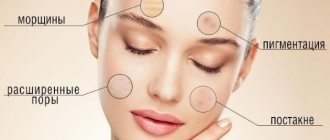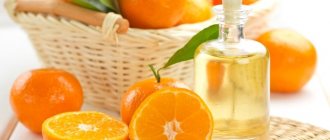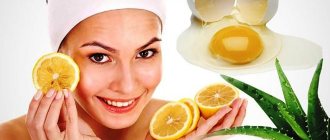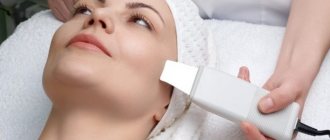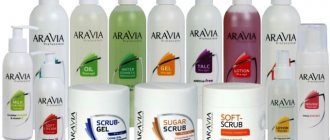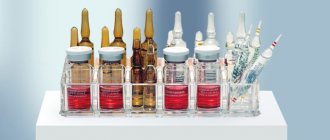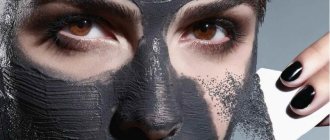What can most upset a woman or girl who looks at herself in the mirror? Skin on the face. It is by this that one can judge youth and health. It's great if it's smooth and fresh. What if it’s dry, flaky, with a dull gray tint? Yes, she will age her mistress by several years!
Caring for problem skin that cannot be masked by any cosmetics, of course, requires effort and money. But the goal of becoming younger and more beautiful is worth it. Moreover, the problem can be solved with home remedies, without wasting time and a lot of money on trips to expensive salons.
Benefits of using homemade masks for problem skin
A regular skin care routine can improve your complexion, fight acne and control oiliness. But don't think you need a fancy spa to get great results.
Using ingredients in your kitchen, you can make a homemade face mask and give your face the nourishment and hydration it needs.
A face mask can replenish and hydrate your skin. These are effective treatments because the ingredients are able to stay on your skin for about 10-30 minutes.
Nutrients and vitamins penetrate your skin to deeply cleanse pores and remove the outermost layer of dead skin. Face masks can cleanse, tighten, exfoliate, soften and brighten the skin.
If you don't have the ingredients (or time) to whip up a homemade mask, an over-the-counter wash-off or peel-off mask is cheaper than a trip to the spa.
Rinsing off the mask involves removing it with warm and then cool water once the mask dries.
Which acne mask to choose?
The mask is not able to solve serious skin diseases, but it is ideal for home care and improving the condition and structure.
The product has a beneficial effect on the degree of dryness and oiliness, pores, narrowing them. The use of masks is possible at any age, it is only important that they match your skin type.
The choice of product should not be based on savings or reviews. What suits one may have a completely negative impact on another. Taking a responsible attitude towards your health, reading ingredients and seeking the help of specialists is the key to beauty.
Tips for using masks for problem skin at home
- Leave the mask on for 10-30 minutes. This allows the ingredients to penetrate your skin. One option: Apply before showering or bathing.
- Before applying the mask, wash your face with water and a gentle cleanser. This helps the mask penetrate the skin better.
- Apply moisturizer after washing off the mask.
- Choose a face mask that suits your skin type. If you have oily or acne-prone skin, choose an oil-free mask that won't clog your pores.
- Splash cold water on your face after removing the mask to close the pores.
- Do not use the mask if you experience skin irritation or an allergic reaction (redness, itching or rash).
- Don't apply the mask every night. Apply it only once or twice a week.
- Do not leave the mask on for too long, otherwise you may cause skin irritation.
- Do not rub your skin when washing off the mask. This may cause irritation and redness of the skin.
Reviews
- Sophia: “I have combination skin with oily areas on the cheeks and enlarged pores. I bought DNC for testing. Overall, the result is encouraging: the skin cleared up well within 2 weeks. I didn’t like the release form – in the form of a sachet. The unused mass dries out even if it is well covered.”
- Marina: “I use a mask of cucumber and yogurt for my dry, often inflamed skin. Very well moisturizes and soothes the skin.”
The solution to problem skin is proper care. Frequent washing with hot water and rubbing with cleansers several times a day will have the opposite effect: an oily surface will become even oilier, a dry surface will become drier. Regular use of moisturizing and cleansing masks will heal and rejuvenate the skin.
Recipes for homemade masks for oily problem skin
Mask for oily problem skin with honey and lemon juice
Honey has antimicrobial properties that help minimize acne. Lemon has an astringent effect on your skin.
You will need
- 1 tbsp. l. honey
- ½ teaspoon diluted lemon juice
Recipe
- Mix both ingredients in a small bowl.
- Distribute the mixture all over your face, focusing on problem areas.
- Leave it on for 15 minutes
- Rinse it off
- Repeat 2-3 times a week.
Note: Always use diluted lemon juice on your skin and apply sunscreen after using this mask as lemon juice makes your skin photosensitive.
Mask for oily problem skin with clay
Clay is anti-inflammatory and helps remove excess dirt and oil. This keeps the skin clear of acne. Rose water has a soothing effect on the skin.
You will need
- 1 tbsp. l. clay
- 1 tablespoon rose water (adjust the amount according to your needs)
Method
- Mix clay and rose water in a bowl.
- Adjust the consistency and spread it all over your face.
- Wait until it dries and then wash it off.
- Repeat 2 times a week.
Mask for oily problem skin with oatmeal and honey
Oatmeal is anti-inflammatory, rich in antioxidants, and helps relieve many dermatological conditions. Honey is antimicrobial and also prevents acne and keeps your skin healthy and hydrated.
You will need
- 1 tbsp. l. oats (powdered)
- 2 tbsp. l. organic honey
- 1 tablespoon water, rose water or milk (to mix ingredients)
Method
- Mix ingredients in a bowl.
- Apply to face and neck.
- Leave for 15-20 minutes.
- Rinse off with warm water.
- Repeat 2-3 times a week.
Mask for oily problem skin with witch hazel and clay
Witch hazel has astringent properties and exhibits anti-inflammatory and antibacterial effects. This face mask helps keep your skin clear and reduce oiliness and acne.
You will need
- 1-2 tablespoons clay (use any clay of your choice)
- 1 tbsp. l. witch hazel
- 1 tbsp. l. water or rose water
Method
- Mix the clay with witch hazel and add water or rose water until you get a paste-like consistency.
- Smear it all over your face and leave to dry.
- Rinse off as soon as it dries.
- Repeat 2-3 times a week.
Cosmetic clay for solving skin problems
Nature has given us one truly unique product - cosmetic clay. Due to the saturation of useful microelements, bactericidal and absorbent properties, masks based on it are simply created for the care of problem skin. And the best part is that this product can be freely purchased at any pharmacy at a very reasonable price.
When it comes to choosing, the main thing is to know the basic properties of each type of clay; this will allow you not to get confused in a wide range of colors.
- White (kaolin) – cleanses, dries and softens, tightens the oval of the face. Well suited for dry skin due to its oily structure.
- Blue and green - rich in natural salts and microelements, have an anti-inflammatory effect, heal wounds and pimples, prevent the appearance of new rashes, and normalize hydrobalance. Indispensable for oily skin. Regular use of blue clay helps lighten freckles and age spots and helps smooth out facial wrinkles.
- Red and pink are rich in iron. Relieve itching and flaking, saturate epidermal cells with oxygen, stimulate blood circulation, eliminate allergic reactions. The first product for sensitive, dry and dehydrated skin.
- Yellow and black are lifesavers for residents of big cities. These clays are able to remove deep impurities and toxins, relieve acne inflammation, and improve complexion.
"Building materials" for your beauty
Mask for dry problem skin
Use avocado and cocoa powder to stimulate collagen production and honey to moisturize and soften the skin.
Composition of the product
- 2 avocados
- 1 tbsp. l. honey
- 2 tbsp. l. cocoa powder
Instructions
- Mash the avocado in a bowl and then add cocoa powder and honey.
- Gently massage the mask onto your face.
- Leave for 20 minutes and then rinse with warm water.
Cleansing clay mask
A clay mask is suitable for any skin type and will be a godsend for those who do not like to spend a lot of time preparing home remedies. Take one tbsp. spoon of cosmetic clay and dilute with water (preferably mineral). The consistency should resemble sour cream. Apply for 15 minutes and rinse.
Recipes for homemade masks for problem skin with acne
Mask for problem skin with aloe vera and turmeric
Both aloe vera and turmeric have anti-inflammatory effects, and both help in reducing acne and maintaining healthy skin.
- 1 tbsp. l. fresh aloe vera pulp
- ½ teaspoon turmeric
Method
- Mix aloe vera pulp in a blender.
- Pour it into a bowl and mix with turmeric.
- Apply the mask to your face and leave for 15-20 minutes.
- Rinse it off.
- Repeat 2-3 times a week.
Mask for problem skin with turmeric and honey
Both turmeric and honey have anti-inflammatory and antimicrobial effects on the skin. These ingredients are widely used in Ayurveda for their medicinal effects.
You will need
- 1 tbsp. l. organic honey
- ½ teaspoon turmeric powder
Method
- Mix honey and turmeric in a bowl to make a paste.
- Apply the paste all over your face or just problem areas.
- Leave on for 15-20 minutes and then rinse off.
- Repeat 3 times a week.
Mask for problem skin with bentonite clay and vinegar
Bentonite clay is often used in traditional skin care products for problem skin. It has a detoxifying effect and protects the skin from damage. Vinegar has an astringent effect on the skin and helps kill acne-causing bacteria
You will need
- 1-2 tbsp. l. bentonite clay
- 1-2 tbsp. l. apple cider vinegar
- 1 tablespoon water (optional)
Method
- Mix clay with vinegar and make a smooth paste.
- Mix water if the consistency is not smooth.
- Distribute the mask evenly over your face.
- Let dry and then wash off.
- Repeat 2-3 times a week.
Mask for problem skin with garlic and honey
Although the effects of local garlic have not been studied, its antioxidant properties may help prevent skin problems. Together with honey, it prevents acne-causing bacteria and keeps your skin clear.
- 1 teaspoon garlic paste
- 1 teaspoon honey
Method
- Mix garlic paste and honey in a bowl.
- Apply to face and leave for 15 minutes.
- Rinse it off.
- Repeat 2-3 times a week.
Mask for problem skin with activated carbon and aloe vera
Those who use activated charcoal think that it removes all the dirt and excess sebum from the skin and leaves it squeaky clean. This face mask can help you deal with excess oil and prevent acne.
You will need
- 1 teaspoon activated carbon
- 1-2 tbsp. l. aloe vera gel
Method
- Mix both ingredients.
- Apply the mixture all over your face.
- Leave for no more than 10 minutes.
- Rinse it off.
- Use once every two weeks. (Regular use of activated charcoal on your face may harm your skin's natural barrier.)
Features of the composition
The peculiarity of care products for problem skin is that they should not:
- in oily skin, cause a rush of blood to the skin, activate the sebaceous glands;
- overdry thin, dry dermis.
Requirements for masks for problematic oily skin:
- heating no higher than 36.5 degrees. and not lower than room temperature;
- no alcohol content;
- irritating (for example, mustard, radish) components;
- the acidity of the composition should approach neutral.
You may also be interested in information about how to make a face mask with hydrogen peroxide.
The video shows which masks should be used first:
What masks should be for dry body surfaces:
- do not contain alcohol;
- create a protective oil film on the face;
- contain a large percentage of moisture.
An important part of care is preparing the face for applying the mask. It must be clean and dry. Soft cleansing gels are used for washing.
But how effective the Japanese face mask with collagen is and how to use it is indicated here.
Recipes for moisturizing masks for problematic facial skin at home
Moisturizing mask for problem skin with yogurt and clay
Yogurt contains lactic acid, which helps improve skin texture and make it smooth. Both ingredients help keep skin clear and healthy.
You will need
- 1 tbsp. l. clay
- 2 tbsp. l. yogurt
Method
- Mix ingredients in a bowl.
- Adjust the quantity (if required) until you get a paste-like consistency
- Apply to face or problem areas. Let the mask dry
- Rinse it off.
- Repeat 2 times a week.
Moisturizing mask for problem skin with cinnamon and honey
Cinnamon (both oil and other extracts) has antibacterial compounds and is effective against Staphylococcus aureus, an acne-causing bacteria. Together with honey, it helps keep skin clear and reduce inflammation.
You will need
- 1 teaspoon honey
- A pinch of cinnamon powder or 1 drop of cinnamon oil
Method
- Mix both ingredients.
- Use it as a spot treatment for acne and pimples.
- Let it sit for 5-10 minutes.
- Rinse it off.
- Repeat once a day until the pimples disappear.
Caution: Cinnamon may cause skin irritation and redness. Do not use it if you have sensitive skin or if you feel discomfort.
Moisturizing mask for problem skin with tea tree oil and clay
Tea tree oil is known for its antimicrobial and anti-inflammatory properties. Along with clay, it helps control excess sebum production and reduces acne.
You will need
- 1-2 tablespoons clay (bentonite clay or any other clay)
- 2-3 drops tea tree oil
- 2-3 tbsp. l. water or rose water (for stirring)
Method
- Mix the clay with water or rose water in a bowl. Adjust the sequence according to your convenience.
- Add tea tree oil to the paste and mix well.
- Apply the mixture to your face or simply to problem areas. Let it dry.
- Rinse it off.
- Repeat 2-3 times a week.
Moisturizing mask for problem skin with egg white, lemon and tea tree oil
Tea tree oil has an antibacterial effect and helps reduce acne. Egg white has a tightening effect on the skin as it dries. Proponents of this face mask claim that applying egg white and lemon to the face can help remove excess oil.
You will need
- 1 egg white
- ½ teaspoon diluted lemon juice
- 2 drops tea tree oil
Method
- Mix all ingredients thoroughly.
- Using a brush, apply a thin layer to your face.
- Let it dry.
- Rinse it off with warm water.
- Repeat this 2 times a week.
Homemade face masks for acne-prone skin may take some time to produce results but they are natural and free from harmful chemicals. If you prefer a natural way of skin care, try these face masks and share your experience in the comments section below.
How to care for problem skin
The good news is that doctors do not consider problematic facial skin a disease. It is, rather, a signal that something has gone wrong in the body. By eating a balanced diet and leading a healthy lifestyle, you can avoid such manifestations. Proper care for such skin is simple:
- wash your face no more than twice a day with cool water, so as not to provoke additional production of sebum by the glands;
- use cleansers designed specifically for problem skin;
- promptly remove dead skin particles using scrubs and sponges so as not to clog pores;
- use a soft towel that does not injure the skin;
- do not get carried away with cosmetics with a dense texture (foundation) that do not allow the skin to breathe;
- limit the harmful effects of environmental factors, use sunscreen and thermal water.
You can fight all the signs of problematic skin: pimples, blackheads and blackheads are temporary troubles. Beauty salons offer a wide range of services: from additional care (peelings, masks) to radical methods (surgical intervention). Often, such procedures are expensive, and it is not always possible to find time for regular visits. There is no need to sacrifice. The solution is to set up a spa at home, borrowing a couple of secrets from the professionals.
